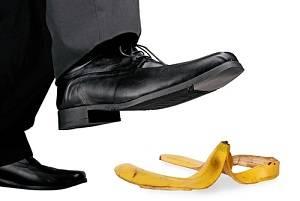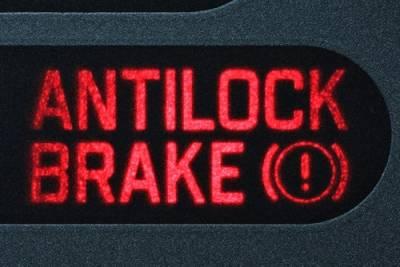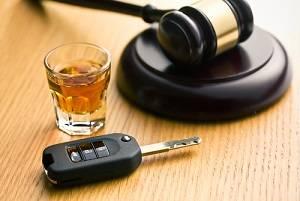
Recent Blog Posts
Deadly Aviation Accident Sparks Federal Action Regarding Engines
 Earlier this week, a Southwest Airlines plane was forced to make an emergency landing when one the of aircraft’s engines exploded and sent debris into the body of the plane. In the wake of the fatal accident, the Federal Aviation Administration (FAA) announced that it will be issuing an “airworthiness directive” regarding the specific type of engine in question because this was not the first time one of them failed in spectacular fashion.
Earlier this week, a Southwest Airlines plane was forced to make an emergency landing when one the of aircraft’s engines exploded and sent debris into the body of the plane. In the wake of the fatal accident, the Federal Aviation Administration (FAA) announced that it will be issuing an “airworthiness directive” regarding the specific type of engine in question because this was not the first time one of them failed in spectacular fashion.
What Investigators Know
The exact cause of the explosion is not yet known, but the chain of events is fairly clear. The incident occurred as a Southwest Airlines flight from New York to Dallas was climbing toward its normal cruising altitude shortly after takeoff. A preliminary investigation suggests that a fan blade in the left-side engine broke, causing an explosion and sending pieces of the engine—including the large outer covering—flying.
Liability for Injuries Caused by a Slip and Fall
 When you are a visitor or guest on someone else’s property, the property own has a responsibility to ensure that you are safe. He or she is not necessarily responsible for stopping you from making poor decisions while on the property, but the owner must take steps to keep the premises free of potential hazards that could cause you to slip and fall or trip and fall. If the property owner does not keep the property safe and you suffer injuries as a result of his or negligence, you could be entitled to collect compensation through a premises liability claim.
When you are a visitor or guest on someone else’s property, the property own has a responsibility to ensure that you are safe. He or she is not necessarily responsible for stopping you from making poor decisions while on the property, but the owner must take steps to keep the premises free of potential hazards that could cause you to slip and fall or trip and fall. If the property owner does not keep the property safe and you suffer injuries as a result of his or negligence, you could be entitled to collect compensation through a premises liability claim.
Recovering compensation for slip-and-fall injuries requires the plaintiff—that is you—to show four primary things:
- The property owner owed you a duty of care. Proving a duty of care includes several elements. You will need to show that the defendant owns or occupies the premises where your injury occurred and that he or she is responsible for keeping the property safe. You must also show that you were permitted to be on the property, as trespassers are not owed the same duty of care as invited guests or visitors.
What You Need to Know About Medical Malpractice
 When you are sick or injured, you trust doctors, nurses, and other healthcare workers to care for you. The responsibility that medical professionals have to their patients is like no other profession. When a hospital or medical professional makes a mistake, the results can be catastrophic. Tragically, medical mistakes and negligence are increasingly prevalent problems that leave thousands injured or killed every year.
When you are sick or injured, you trust doctors, nurses, and other healthcare workers to care for you. The responsibility that medical professionals have to their patients is like no other profession. When a hospital or medical professional makes a mistake, the results can be catastrophic. Tragically, medical mistakes and negligence are increasingly prevalent problems that leave thousands injured or killed every year.
Medical Errors Now Account for a Staggering Number of Deaths
The Latin phrase “Primum non noceere” which means, “First, do no harm,” is often recited by physicians as a promise to uphold their responsibility to keep patients safe from injury. Unfortunately, this promise is not always kept. Most people are aware that there are instances when medical professionals fail to do the job they have a sworn duty to do but have no idea how prevalent the problem really is. The Journal of the American Medical Association reports that medical negligence—instances when health professionals cause injury to a patients—is the third leading cause of death in the United States. Only heart disease and cancer kill more Americans than medical malpractice. Many of the victims of medical negligence seek financial compensation for their injuries. The issue is so pervasive that over $3 billion was spent in medical malpractice payouts in 2012 alone. This works out to an astounding one payout every 43 minutes.
Understanding Nursing Home Neglect and Abuse
 As the “baby boomer” generation ages, more and more elderly or disabled individuals will need care in a nursing home. A new study estimates that over half of all Americans will require some sort of nursing home stay in the future. This estimate is much higher than experts had previously thought. Unfortunately, this increased need for nursing home facilities and staff has left some nursing homes understaffed and grossly mismanaged.
As the “baby boomer” generation ages, more and more elderly or disabled individuals will need care in a nursing home. A new study estimates that over half of all Americans will require some sort of nursing home stay in the future. This estimate is much higher than experts had previously thought. Unfortunately, this increased need for nursing home facilities and staff has left some nursing homes understaffed and grossly mismanaged.
Widespread Problems
Elderly individuals deserve to be treated with compassion and respect and to feel safe in their home, but unfortunately, many nursing homes are not as safe as they should be. A congressional report showed that almost a third of all nursing homes had committed violations which could cause harm to residents. In a survey of nursing home residents, 44 percent reported that they had been abused while staying in a nursing home. Even more shockingly, 95 percent of nursing home residents reported that they had seen nursing home staff neglect other residents. Nursing home neglect can include:
Injuries Caused by Anti-Lock Brakes
 Car accidents can happen for a multitude of reasons. Sometimes, one or more drivers share fault in causing the accident. Other times, the entity who is at fault for the accident is not even on the scene of the accident because the party at fault is the manufacturer of the vehicle. Motor vehicles are extremely complex machines and because of this they frequently have malfunctions which can put the passengers in the car, other motorists on the road, and pedestrians at risk of death or serious injury.
Car accidents can happen for a multitude of reasons. Sometimes, one or more drivers share fault in causing the accident. Other times, the entity who is at fault for the accident is not even on the scene of the accident because the party at fault is the manufacturer of the vehicle. Motor vehicles are extremely complex machines and because of this they frequently have malfunctions which can put the passengers in the car, other motorists on the road, and pedestrians at risk of death or serious injury.
Anti-Lock Brakes Can Malfunction
The anti-lock braking system (ABS) is a computer-assisted braking system which prevents the brakes from locking up. ABS have come into widespread use in production automobiles since their adoption in the 1970s. In addition to anti-lock brakes, modern motor vehicles also often have electronic control of the front-to-rear bias, traction control, electronic stability control, and emergency brake assist. These computer-assisted features are supposed to make the car safer and more easily controlled. Unfortunately, computer systems in cars can malfunction just like other computer systems.
The Truth About a Well-Known “Frivolous” Lawsuit
 Most people have heard about the now-infamous McDonald’s hot coffee lawsuit. It is a story which has been widely misrepresented by the media and is often misunderstood by the general public. The 79-year-old plaintiff was in the passenger seat of a car when she went through the McDonald’s drive-thru and ordered a coffee. As she was unfastening the lid of the coffee, it tipped and spilled on her. When she and her family brought a lawsuit against McDonald’s, many considered the suit to be ridiculous. After all, we have all accidentally spilled coffee or other drinks before. The public, in general, did not understand how the situation was the restaurant’s fault and assumed the plaintiff was merely greedy or looking for an easy payout.
Most people have heard about the now-infamous McDonald’s hot coffee lawsuit. It is a story which has been widely misrepresented by the media and is often misunderstood by the general public. The 79-year-old plaintiff was in the passenger seat of a car when she went through the McDonald’s drive-thru and ordered a coffee. As she was unfastening the lid of the coffee, it tipped and spilled on her. When she and her family brought a lawsuit against McDonald’s, many considered the suit to be ridiculous. After all, we have all accidentally spilled coffee or other drinks before. The public, in general, did not understand how the situation was the restaurant’s fault and assumed the plaintiff was merely greedy or looking for an easy payout.
Appalling Injuries
The actual story is much more gruesome. What many do not realize about the cup of coffee from McDonald’s was that it was served at a temperature between 180 and 190 degrees Fahrenheit—per corporate specifications. Liquid at this temperature is so scalding that it can cause third-degree burns in two to seven seconds. Third-degree burns are the most severe type of burn a person can endure and result in skin being burned down to the muscle/fatty-tissue layer.
Winter Brings Snowmobile Dangers
 While winter can be a beautiful time of year, it does come with some very unique risks. Every year, people are injured and killed in auto accidents caused by snow-covered and icy roads. We generally think of winter weather conditions being dangerous primarily for motorists, but there are risks for those who use snowmobiles during the snowy months.
While winter can be a beautiful time of year, it does come with some very unique risks. Every year, people are injured and killed in auto accidents caused by snow-covered and icy roads. We generally think of winter weather conditions being dangerous primarily for motorists, but there are risks for those who use snowmobiles during the snowy months.
Illinois Man Dies After Snowmobile Accident
Sadly, an Illinois man who was involved in a snowmobile accident on New Year’s Day has passed away due to the injuries he sustained in the accident. When the 33-year-old Coal Valley native failed to return home after going out to use his snowmobile on New Year’s Day, officers were called to the scene. When they arrived, they found the man lying underneath the machine. He was transported to the hospital where he was later pronounced dead. Because a snowmobile involved, the Illinois Department of Natural Resources will be in charge of the investigation.
Make Sure Your Car Is Winter Ready
 Every time a person gets in a vehicle, he or she is are taking a risk. Although we often do not think about it, driving or riding in a motor vehicle is a dangerous activity. Advances in vehicle safety have helped, but car accidents do still happen. There is no way to completely eliminate the risk of being in a car accident, but making sure your car is ready for the winter is one way you can lessen it.
Every time a person gets in a vehicle, he or she is are taking a risk. Although we often do not think about it, driving or riding in a motor vehicle is a dangerous activity. Advances in vehicle safety have helped, but car accidents do still happen. There is no way to completely eliminate the risk of being in a car accident, but making sure your car is ready for the winter is one way you can lessen it.
Experts suggest that drivers take the following steps in order to keep their car maintained adequately for the winter:
- Read the owner’s manual and follow the manufacturer’s recommended service schedule;
- Keep your gas tank filled and add a bottle of fuel deicer in your tank once a month during the coldest months. This can help prevent moisture in the fuel line from freezing, which can cause issues;
- Have your battery checked and consider keeping a set of jumper cables in your car. If your car has had problems such as stalling, hard starts, rough idling, or reduced power, get it serviced immediately. Cold weather can make these problems worse;
Largest Recall in U.S. History Progressing Slowly
 In what the NHTSA has called "the largest and most complex safety recall in U.S. history," approximately 46 million vehicles equipped with Takata airbags have been recalled. The airbags were found to have chemical defects that can cause them to explode and spray metal shrapnel onto passengers. The propellant in the air bags was found to break down when exposed to high temperatures and humidity. This causes the propellant to burn too quickly and results in increased pressure in the inflator, which can cause the inflator to explode.
In what the NHTSA has called "the largest and most complex safety recall in U.S. history," approximately 46 million vehicles equipped with Takata airbags have been recalled. The airbags were found to have chemical defects that can cause them to explode and spray metal shrapnel onto passengers. The propellant in the air bags was found to break down when exposed to high temperatures and humidity. This causes the propellant to burn too quickly and results in increased pressure in the inflator, which can cause the inflator to explode.
Dangerous Products
The faulty airbags have injured nearly 200 people and killed 19. Takata airbags are in cars made by 19 different manufacturers. Some automakers, such as Tesla, Honda and Subaru, have been vigilant about getting news of the recall out to the public. They have contacted consumers by putting ads on social media and sending representatives door-to-door. Unfortunately, other automakers are not being as aggressive with their outreach. Of course, letting people know about the recall is only half the battle. It is sometimes difficult to get people to respond to recalls such as this because they do not think the problem is a big enough concern to actually take the car in to be fixed. The NHTSA and vehicle manufacturers are urging the public to get their defective airbags fixed as soon as possible. The repair is free for consumers.
Watch for Drunk Drivers During the Thanksgiving Weekend
 For many people around the country, the Thanksgiving holiday begins on Wednesday and continues through to Sunday—or even Monday in some areas. Most children do not have school, and a large number of adults take time off work to travel, visit family, and spend the holiday weekend with loved ones. Of course, many Thanksgiving celebrations include alcoholic beverages, which means there is a marked increase in the number of potentially intoxicated drivers on the road at the end of the celebration. There a few things that you can do, however, to avoid becoming the victim of a drunk driver’s bad decisions.
For many people around the country, the Thanksgiving holiday begins on Wednesday and continues through to Sunday—or even Monday in some areas. Most children do not have school, and a large number of adults take time off work to travel, visit family, and spend the holiday weekend with loved ones. Of course, many Thanksgiving celebrations include alcoholic beverages, which means there is a marked increase in the number of potentially intoxicated drivers on the road at the end of the celebration. There a few things that you can do, however, to avoid becoming the victim of a drunk driver’s bad decisions.
Be Alert When Out and About
Whether you are driving yourself, riding with another person, or simply walking somewhere during the Thanksgiving weekend, you would do well to be aware of your surroundings. Pay particular attention to other vehicles, watching for indications that other drivers may be impaired or not focused on the road. Common signs of driver impairment include:








